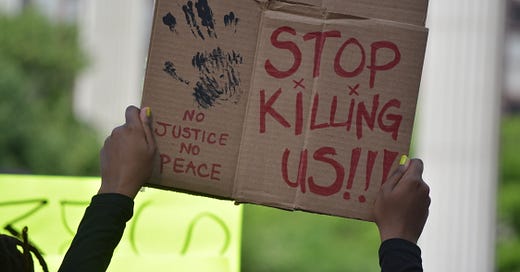How to Talk to Kids About Police Violence
Yes, we need to talk to kids about Tyre Nichols and systems of oppression.
Some of you may have noticed that today’s newsletter is a little late, and that’s because I needed some time to report this one out. I’ve been angry and heartbroken since the video of Tyre Nichols’s murder was released on Friday, and over the weekend, I talked to both my kids about what happened.
The conversation was hard for many reasons, but as I’ve written here before (and in my book), it’s crucial that we talk to kids about racism and oppression and everything that happens in the world because of it. Of course, parents of Black children *have* to have these conversations; I have the massive privilege of raising children who don’t experience racism or need to be afraid of the police, but they do need to understand how broken our country is and that they should do everything they can to change it. (For more on the science that supports *why* parents should talk to their kids about racism and police violence, read this newsletter.)
Plus, it’s possible that kids will hear about what happened from friends at school or through the media, so it’s important that parents start conversations to address any misconceptions kids might have.
But how should we talk to our kids about what happened, and how might our framing differ depending on our child’s race and ethnicity? Today I interviewed Raquel Martin, a clinical psychologist who works to empower and educate people about mental health, anti-racism, Black identity development, and health disparities & inequities, and Isha Metzger, a clinical psychologist who directs the EMPOWER lab at Georgia State University. They shared many insights on how to have these conversations, even with young kids, and how to balance negative and positive messages. What follows are the key points they made. Be sure to also check out the resources they shared with me at the bottom of this post. I’m immensely grateful for their help.




